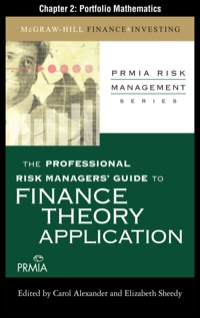Question
Background Gikomba Ltd is considering the financial results for the year ended 31 December 2020. The industry places great reliance on the return on equity
Background
Gikomba Ltd is considering the financial results for the year ended 31 December 2020. The industry places great reliance on the return on equity (ROE) as an indicator of how well a company uses shareholders funds to generate a profit.
Return on equity (ROE)
Gikomba Ltd analyses ROE in order to understand the fundamental drivers of value creation in the company. ROE is calculated as:
Return on equity = Net profit before tax x Sales x Assets
Sales Assets Equity
Gikomba Ltd uses year-end equity and assets to calculate ROE.
The following information in table 1 relates to Gikomba Ltd for the last two years:
2019 2020
(KShs m) (KShs m)
Net profit before tax 30 38
Sales 200 220
Assets 250 210
Equity at 31 December 175 100
Special purpose entity (SPE)
During the year ended 31 December 2020, Gikomba Ltd stated that it had reorganised its assets and set up a SPE. Gikomba Ltd transferred property to the SPE at its carrying amount of KShs 50 million, but had incorrectly charged revaluation reserves with this amount rather than showing the transfer as an investment in the SPE. The property was the SPEs only asset. However, Gikomba Ltd still managed the property, and any profit or loss relating to the assets of the entity was remitted directly to Gikomba Ltd. Gikomba Ltd had no intention of consolidating the SPE.
Miscellaneous transactions
Gikomba Ltd has bought back 25 million shares of KShs 1 for KShs 120 per share during the year ended 31 December 2020 for cash and cancelled the shares. This transaction was deemed to be legal.
Gikomba Ltd also raised loan capital for the first time during the year ended 31 December 2020 of KShs 20 million in order to help with the buy-back of the companys shares.
Gikomba Ltd had purchased a 25% interest in an associate company on 1 July 2020 for cash. The investment had cost KShs 15 million and the associate had made profits of KShs 32 million in the year to 31 December 2020. Gikomba Ltd accounted for the purchase of the associate correctly.
All of these miscellaneous transactions have been accounted for in the financial information for the year ended 31 December 2020 in table 1.
Required:
(a) Managements intent and motivation will often influence accounting information. However, corporate financial statements necessarily depend on estimates and judgement. Financial statements are intended to be comparable but their analysis may not be the most accurate way to judge the performance of any particular company. This lack of comparability may be due to different accounting policy choices or deliberate manipulation.
Discuss the reasons why an entity may choose a particular accounting policy where an International Financial Reporting Standard allows an accounting policy choice and whether faithful representation and comparability are affected by such choices. (6 marks)
(b) i. Discuss the usefulness to investors of the ROE ratio and its component parts provided above and calculate these ratios for the years ended 31 December 2019 and 2020. These calculations should be based upon the information provided in table 1. (7 marks)
ii. Discuss the impact that the setting up of the SPE and miscellaneous transactions have had on ROE and its component parts. Given these considerations, adjust table 1 and recalculate the ROE for 2020 thereby making it more comparable to the ROE of 2019.
Step by Step Solution
There are 3 Steps involved in it
Step: 1

Get Instant Access to Expert-Tailored Solutions
See step-by-step solutions with expert insights and AI powered tools for academic success
Step: 2

Step: 3

Ace Your Homework with AI
Get the answers you need in no time with our AI-driven, step-by-step assistance
Get Started


